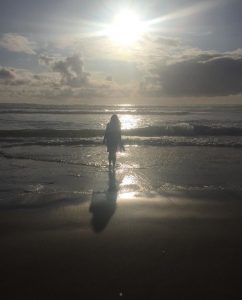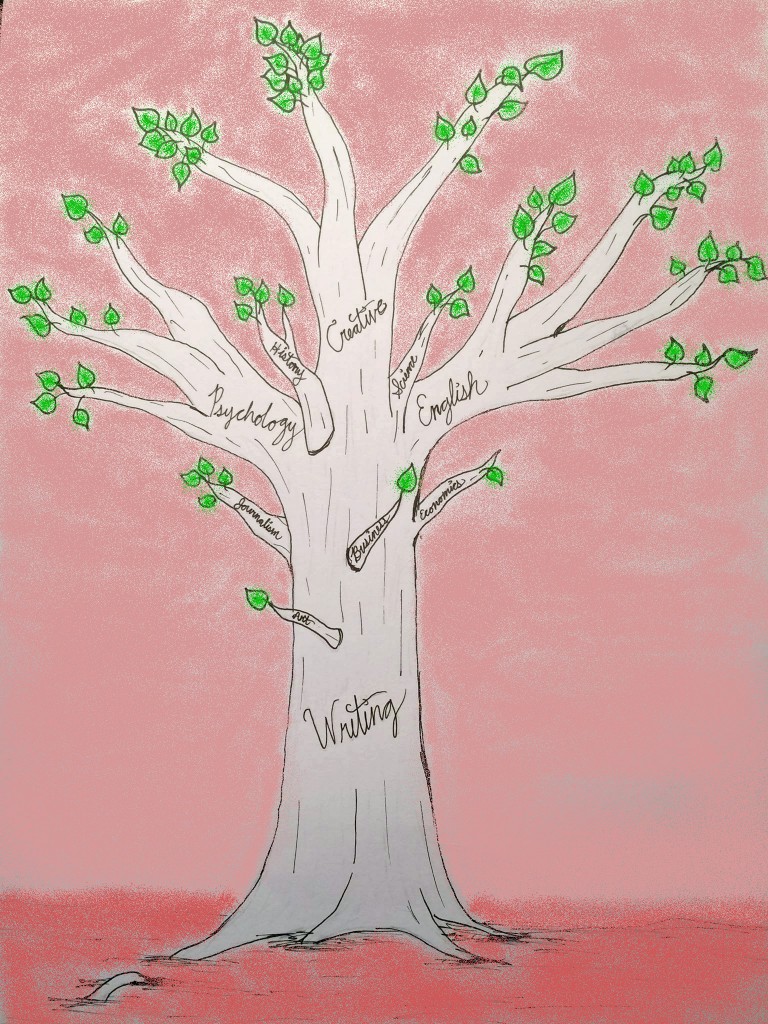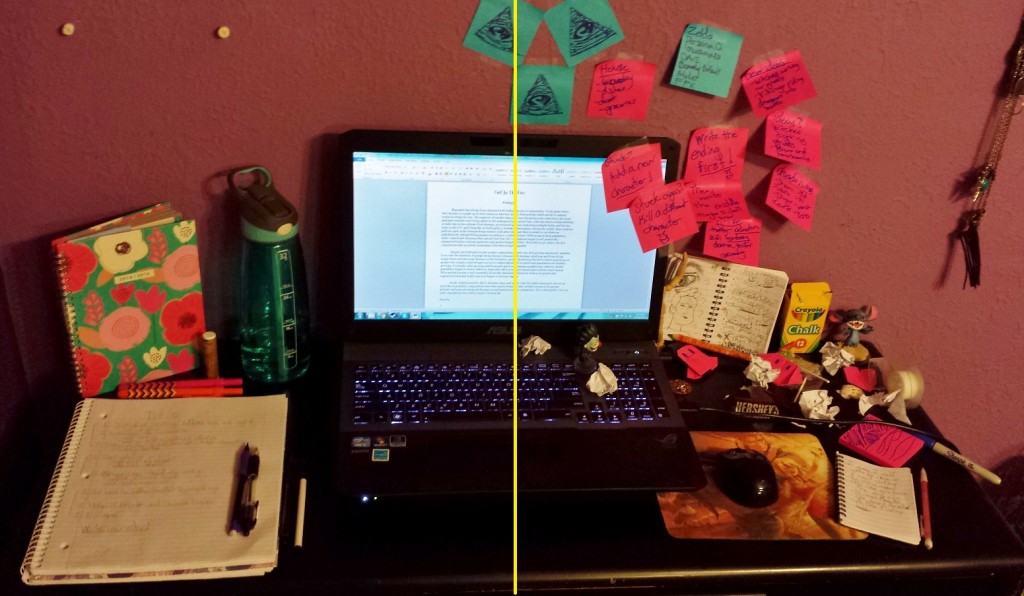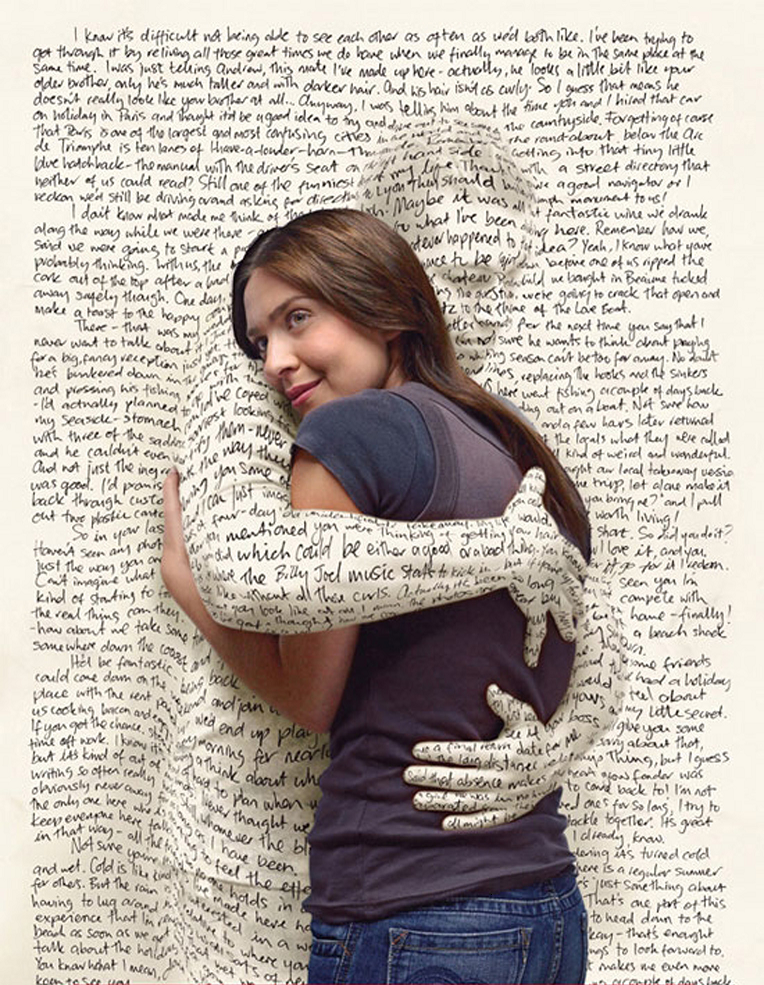My Writer’s Manifesto was supposed to be something beautiful. I had two thirds of a draft, ready to go – I’d even run it by Katherine – and I was mostly proud of it. It was good writing. I may even post it somewhere.
But it wasn’t the truth. I thought it was, I absolutely did. I really wanted to talk about finding the nuances of creativity within the realm of scholarly rules for writing, and the way water has always played such a massive role in my history with writing. But I couldn’t do it. Not this week.
My life blew up in my face this year, and if that’s not representative of my relationship with writing, then I don’t know what is. I had to do a lot of uncomfortable self-discovery and examination, and basically spent the year feeling like I was about to burst into a million scraps of human. Oh, and Alan Rickman died, which was unnecessary.
It was, and is, rough. But I’m here.
Writing has always been there for me. I don’t know why I love it so much, honestly. Nobody really nurtured my relationship with words outside of my parents spending money on journals. Okay, I take that back. They read me hundreds of other people’s stories and were always more than ready to read anything I wrote. They told me I was good, that I had a talent. But being told I get along well with someone (in this case, writing) doesn’t mean I fall in love with them. I just did. And I don’t know why.
Writing has cradled me when I felt like I was alone. It is my main mechanism for talking to other people and to God. It helps me spit out the black, confused feelings that build up inside, and even if I can’t organize what I think, at least it isn’t inside me anymore.
I was wrong with my first draft. Writing isn’t about making something beautiful. It, for me, is about being honest.
There’s a reason that when I feel trapped by life, I write. There’s a reason that when I get a surge of creativity, it comes out on paper. There’s a reason that I live and die by cheap BIC mechanical pencils and why, when everything is falling apart, I do what I know best. I write. It is my baptism and my purifier; it is all I have on the days where I feel like bolting.
I hate Ernest Hemingway. His writing, of course, is brilliant, but he was more or less an irresponsible, overly macho excuse of a man. That being said, he did have some good advice: “There is nothing to writing. All you do is sit down at a typewriter and bleed.” When I am tired of the excess of life, when the wonders of its constant dramaticism have exhausted me, writing is simple. I don’t have to sound good. There’s no one to impress. I can just bleed.
Formal writing has its place. Maybe what I’m handing you isn’t even what was meant by a Writer’s Manifesto, and you were expecting something that stuck to conventions and didn’t start sentences with “but” at least four times. The rules are great. Writing for a particular audience has its place. I will always love a flawlessly formatted works cited page and gorgeously complex sentences. But this is it. This is me.
Writing is used for an array of amazing, pretty things, but I think at the end of the day writing, in its purest form, is for telling the dirty, painful, emotionally wracking truth. Once the bitterness has been written out, something kinder can begin to grow from the tender wounds. After all, fairy tales and romances still need to be written, and so do love letters, and poems about the color of a May sunrise, and descriptions about the silkiness of waves brushing over the sand at my favorite beach, and everything else that is lovely and good. Just not yet. Just not today.









